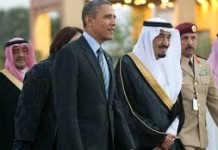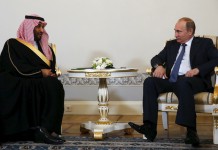Context

Secretary of State Hillary Clinton arrived in Pakistan today. The following analysis explores the turbulent situation in Afghanistan and its continuing impact on the domestic politics of the United States and especially, Pakistan. The US and Pakistan are drifting apart as public opinion in Pakistan becomes increasingly hostile towards America’s role in the war on terror. Pakistan believes that it is paying the heaviest price of the all allies for its cooperation in this war, with nothing but veiled antagonism in return. So the question is: as the Waziristan operation gradually gathers pace, what message is the US Secretary of State bringing to Pakistan in the wake of the Kerry-Lugar bill?
Analysis
Recent controversy between the US and Pakistan revolves around Afghanistan and the war against terror. Pakistan has come to feel that not enough attention is being paid to its interests.
The Institutional Tussles in the US
To counter this perception, the US Congress has crafted the Kerry-Lugar bill, supposedly intended to build a solid long-term relationship with the people of Pakistan. This effort turned out to be a public relations fiasco for the United States, as the document and its provisions actually intensified distrust between the two allies. In Pakistan, the bill was seen as an attempt on the part of the US, abetted by India, to weaken Pakistan. So the chief questions for the US have become, “Who is our real ally, Pakistan or India? Is countering China, where India’s help would be vital, the priority, or a short-term relationship with Pakistan whose assistance is needed in Afghanistan?”
Disagreement over these questions has escalated the institutional tussles within the Obama Administration, with the White House, Congress and the military each taking different positions, which sends contradictory messages to Afghanistan and Pakistan. These two countries interpret the incongruous messages to mean that the US is playing good and bad cop.
For example, the State Department Envoy Richard Holbrooke’s stated objective, to build a special relationship with Pakistan, was dealt a blow by news of the provisions of the Kerry Lugar bill. Pakistan plausibly concluded that Congress, pressured by the Indian lobby, didn’t really support the State Department’s mission. During the fracas, US generals were praising Pakistan’s military’s recent performance, while the Kerry-Lugar bill was widely seen as an attempt to curtail the power of Pakistan’s military. Meanwhile, Senator Kerry headed to the region to clarify the congressional view.
The Institutional Tussles in Pakistan
The institutional confusion in the US has had its impact on the domestic political scene in Pakistan and its view of the US. The Zardari government lost public credibility as a consequence of the Kerry-Lugar bill. Pakistan’s thought leaders are increasingly inclined to believe that their country is paying a steep high price for its alliance with the US. All of this could be interpreted to mean that Pakistan is gradually turning away from the US.
In this environment, in which President Obama’s strategy regarding Afghanistan and the region is still unclear, Hillary Clinton will reassure Pakistan with promises of support. India, China and Russia are now claiming to have a stake in the Afghan conflict and the US must do something to erase the impression that it regards India as its real partner and that Pakistan’s usefulness is only temporary.
Regional Approach
To build a lasting relationship, the US and Pakistan must find common interests besides Afghanistan and that hasn’t been accomplished yet. US interests are more aligned with that of India, highlighted by the upcoming state visit by Indian Prime Minister Manmohan Singh to the US.
Pakistan will respond by developing a regional approach to counter US intentions in the region, as well as strengthening its ties with China. It is already doing this by developing economic ties with Iran and Turkey, as was envisioned and implemented by the late Zulfiqar Ali Bhutto. Turkey has recently become more visible on the world stage and the US needs it to counter Russia and normalize affairs in the Middle East. So Pakistan has come to realize that it is only through this multilateral approach that it can achieve a balance of power in the region and counter India.
Thus, the purpose of Hillary Clinton’s visit to Pakistan is to allay hard feelings regarding the Indian Prime Minister’s impending first state visit to the US under the Obama Administration. Close ties between India and the US is a continuation of the policy established under President Clinton. The message for Pakistan is to adapt to the changing dynamics of the region and the world. Unfortunately, the US and Pakistan interpret these changes differently and each expects the other to adapt, according to its own version.
Tell Us What You Think
Feedback@politact.com



